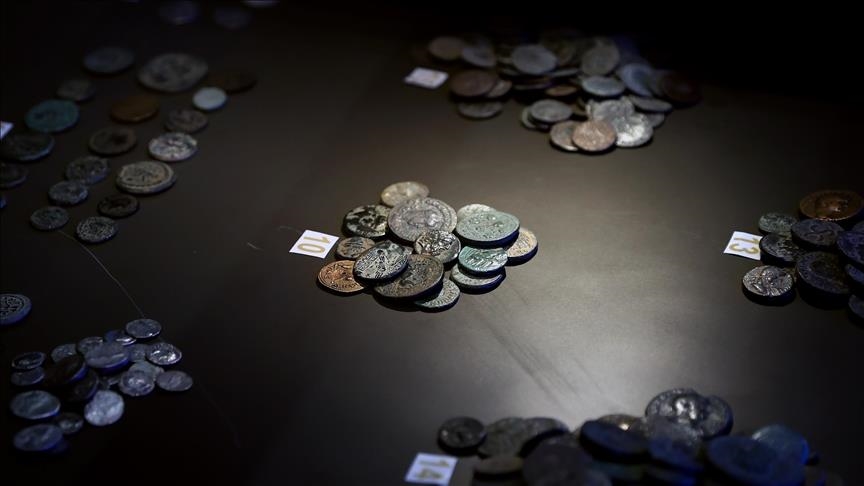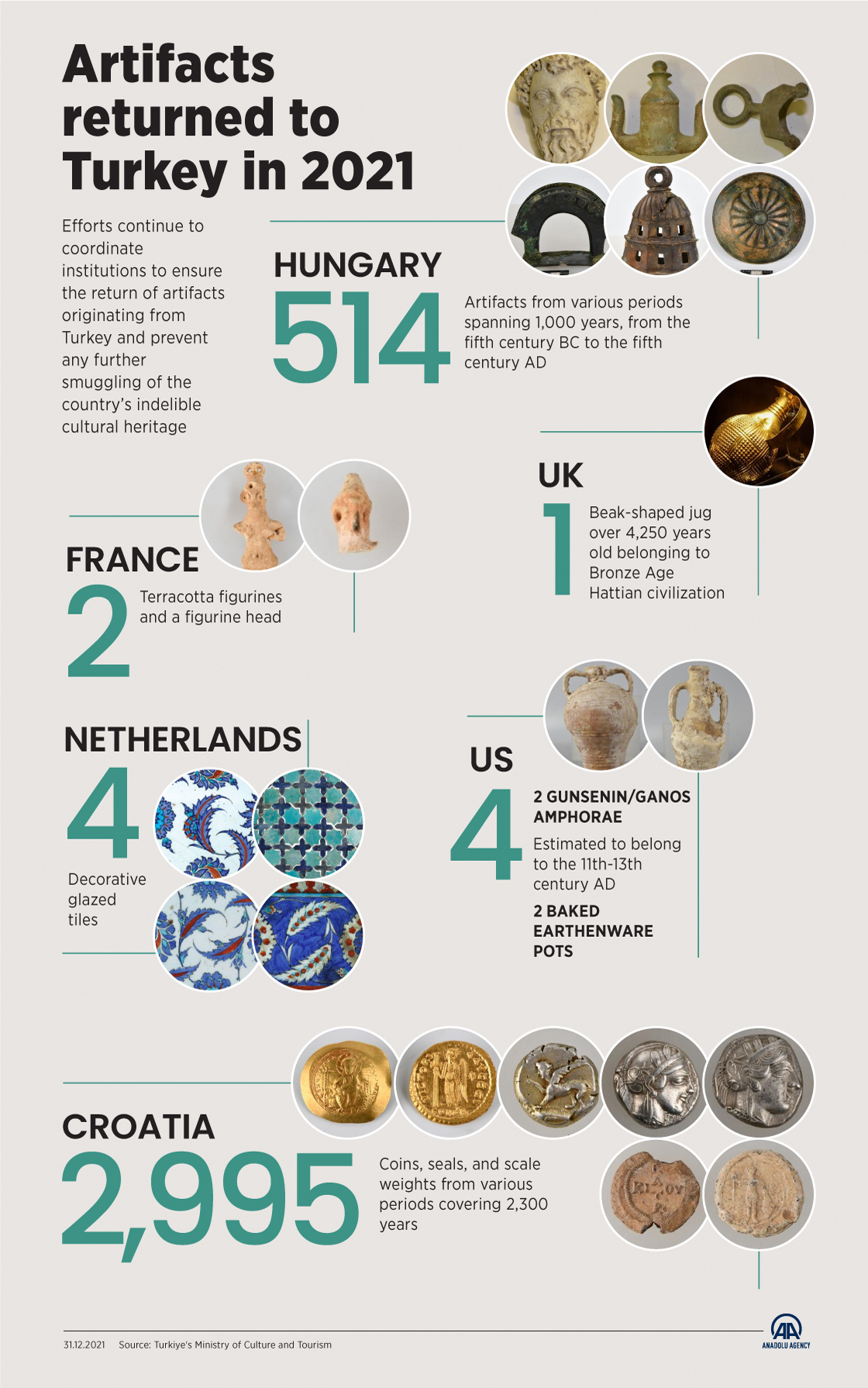
ANKARA
Turkey recovered some 3,480 of its cultural assets this year thanks to the efforts of the country's anti-smuggling authorities.
These artifacts sometimes included "a piece of ceramic tile, sometimes a coin, sometimes a statue, a mosaic," said Zeynep Boz, who heads the anti-trafficking department at the country's Culture and Tourism Ministry.
Underlining that the department achieved a lot this year, Boz said that regardless of the kind of cultural asset involved, it is their duty "to ensure that no steps are taken against my country's laws" on artifact smuggling.
Mentioning some of the hurdles that she and her team face, Boz said they often had to prove to that an asset was taken out of the country illegally despite its origin being clear.
"The fact that there's no chance for it to be legal actually constitutes natural proof," said Boz, adding that such "illogical attitudes" were the most difficult challenge with which they had to contend.
This makes no dent in their determination, however, with Boz saying that once a file is opened it is not closed until they get results. "There's no such thing as surrender in our work. Once a file of ours is opened, it is never closed, whether we make progress or not."
"We may be able to finish (the case) today, or maybe we can't. Twenty years from now, our colleague may finish it instead," she said, citing a case launched by Halil Ethem Bey, a senior official in the Ottoman court, for the return of the Bogazkoy, or Hattusa, Sphinx that was finally concluded in 2011 -- 94 years after it was opened.
Noting that Turkey's international cooperation in this area has increased particularly with the Balkan nations, Boz said it was most difficult to work with museums in the UK due to the sheer number of return requests they has to deal with.
She added that British museums were "a little cautious," even towards "the most reasonable request" to avoid having to accept all such requests, leaving their exhibits empty.

The process for recovering artifacts involves multiple state agencies, including law enforcement and judicial authorities, as well as diplomatic efforts and legal cases with the countries where the artifacts are found.
Taking cultural assets abroad without official permission was outlawed in the Ottoman Empire in 1906, a policy that continued under the Republic of Turkey founded in 1923.
Under current legislation that has been in place since then, unlicensed excavation is illegal, as is failing to report any uncovered artifacts to authorities.
*Writing by Jeyhun Aliyev


